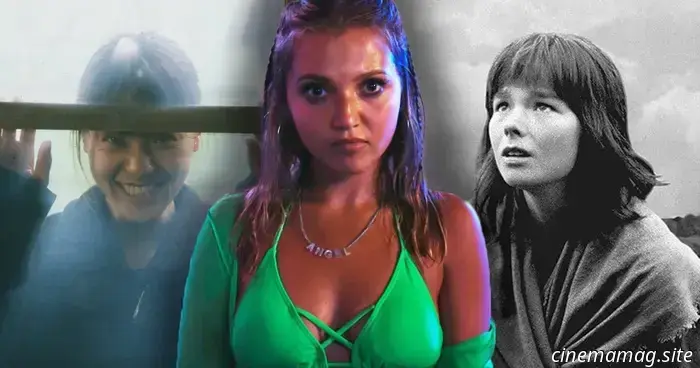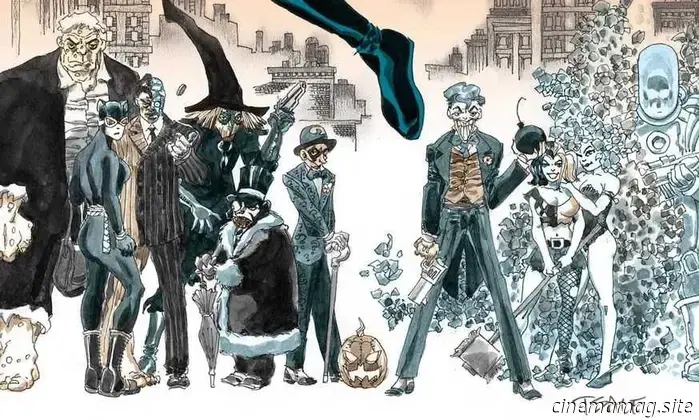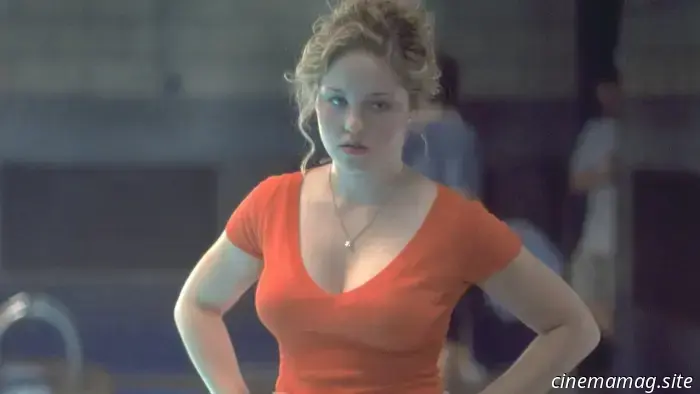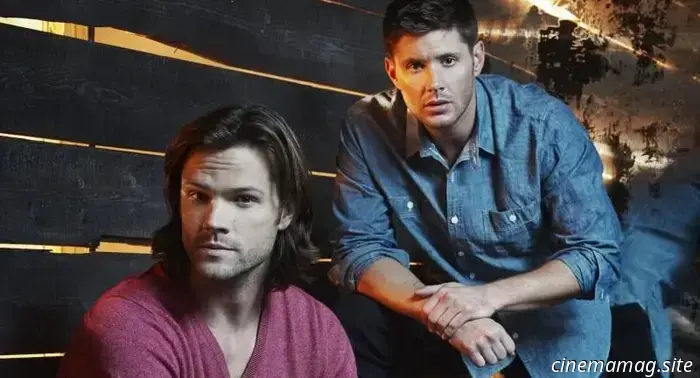
10 Profound Films You May Have Overlooked
There’s no straightforward escapism here; it’s time to delve into these ten remarkable, thought-provoking films that might have gone unnoticed by you.
It’s time to explore deeper themes. The beauty of cinema lies in its diversity and the wide range of options available to viewers. If you’re looking for simple escapism, you’re in luck. If grueling portrayals of war are what you seek, that option exists as well. Twist-laden narratives filled with intricate ideas? Chris Nolan certainly has you covered.
However, some films prefer to dive deep, often transforming simple plots into profound character explorations. They may touch upon larger themes or topics (such as class, society, masculinity, and sexuality) embedded within the narrative.
Cerebral films don’t always have to belong to heady genres; these films invite audiences in, always remaining just out of reach, demanding viewers to engage with deeper questions or analyze the complex psychology of the protagonist, as well as the world surrounding them. It’s cinema that encourages reflection and calls for repeated viewings.
Numerous iconic examples exist, like 2001: A Space Odyssey, which provokes inquiries into existence and evolutionary progression, or more recently, Parasite, which intricately wove a narrative filled with subtext, particularly regarding class dynamics in Korea. However, as these films often don’t align with mainstream box office success, it’s fair to say that many outstanding works fly under the radar. Here are ten profound films you likely haven’t yet experienced.
Nostalghia
Andrei Tarkovsky perhaps mastered the art of exploring deeper inquiries rather than following narrative conventions. His films are known for their deliberate pacing, effectively filtering viewers based on their willingness to engage. They are designed to be emotional journeys, requiring audiences to surrender to his unique approach to time. If you do, you’ll likely be enveloped by the rich, earthy visuals of his films, characterized by a heavy ambiance of dampness, dust, and the sound of wind through trees.
The settings are alive and immersive, featuring protagonists often entrenched in existential or philosophical dilemmas. Tarkovsky frequently addresses themes of religion in his work. One of his lesser-known films, Nostalghia, marked his first venture outside Russia amid his exile. The Italian film follows a Russian poet researching an 18th-century composer and his encounter with a local societal outlier. Both men find themselves at philosophical crossroads, yearning for a past long gone.
As with much of Tarkovsky’s work, it is both elusive and evocative. His portrayal of dreams is unparalleled, and the film is stunningly cinematographed with lengthy, captivating takes, while raising profound existential questions regarding its main characters.
Moving
Shinji Somai enjoyed a degree of success in Japan, and his film Moving was particularly significant for his international reach. Centered on a 13-year-old girl navigating her parents’ divorce, it addresses relatable issues that transcend language.
Somai's cinematography is exquisite, capturing intimate moments and subtle dynamics between the initially resentful parents and their daughter, who desires stability, in a masterful manner.
Moreover, the film offers more than a mere observation of coming-of-age amidst a fractured family dynamic; it probes into societal views on divorce and the struggles of young children reacting to the disruptions caused by a broken home. All the while, Somai seamlessly weaves in dazzling moments of magical realism. Tomoko Tabata’s portrayal of the young Renko is remarkable.
Secret Sunshine
Lee Chang-dong is likely most recognized by Western audiences for his recent masterpiece, Burning, a slow-burning thriller that explores the perspective of an unreliable protagonist rather than focusing on solving a potential murder.
He also garnered recognition with films such as Oasis and Secret Sunshine. The latter features Jeon Do-yeon and Song Kang-ho (known outside Korea for Parasite) and dives deeply into themes of profound grief and the use of religion as a crutch. A recently widowed woman, along with her young son, relocates to her deceased husband’s hometown to start anew.
A twist in the middle shifts the narrative to darker themes and a new phase of grief, as Shin-Ae (Do-yeon) seeks solace, understanding, and higher answers through faith. After feeling rejected and punished by God, she responds with defiance that borders on the criminal. Do-yeon portrays her anguish with such intensity that it becomes difficult to watch, while Chang-dong maintains a captivating and observant gaze. It stands as a masterpiece.
Harvest
A more recent film that may have gone unnoticed by those not subscribed to Mubi is Harvest, an occasionally dreamy psychological folk drama that may have suffered due to marketing that suggested it leaned more toward horror than it truly does.
Set in a remote pre-industrial village affected gradually by the outside world, it features Caleb Landry-Jones as the enigmatic best friend of the village's surrogate leader (Harry Melling











Other articles
 Psychological horror film The Beldham unveils its trailer and poster.
Quiver Distribution has released a trailer and poster for Angela Gulner's psychological horror film, The Beldham, prior to its digital launch next month. The movie features Patricia Heaton, Corbi…
Psychological horror film The Beldham unveils its trailer and poster.
Quiver Distribution has released a trailer and poster for Angela Gulner's psychological horror film, The Beldham, prior to its digital launch next month. The movie features Patricia Heaton, Corbi…
 Comic Book Preview – Batman: The Long Halloween – The Final Halloween #10
The tenth and final installment of Batman: The Long Halloween – The Last Halloween will be released this Wednesday, and you can check out a sneak preview in the official preview below… It’s all been le…
Comic Book Preview – Batman: The Long Halloween – The Final Halloween #10
The tenth and final installment of Batman: The Long Halloween – The Last Halloween will be released this Wednesday, and you can check out a sneak preview in the official preview below… It’s all been le…
 The 10 Most Frightening Female Stalkers in Films
In reality, the majority of stalkers are men, yet numerous films reverse this trend by featuring female stalkers as the main focus.
The 10 Most Frightening Female Stalkers in Films
In reality, the majority of stalkers are men, yet numerous films reverse this trend by featuring female stalkers as the main focus.
 The Batmobile from the classic Batman TV series is now part of McFarlane Toys' DC Multiverse collection.
McFarlane Toys has officially revealed the upcoming Batmobile, which will be released as part of its 7-inch scale DC Multiverse action figure series. This model features the iconic vehicle from the classic Batman TV show of the 1960s.
The Batmobile from the classic Batman TV series is now part of McFarlane Toys' DC Multiverse collection.
McFarlane Toys has officially revealed the upcoming Batmobile, which will be released as part of its 7-inch scale DC Multiverse action figure series. This model features the iconic vehicle from the classic Batman TV show of the 1960s.
 Comic Book Sneak Peek – X-Vengers #1
Marvel Comics' Age of Revelation tie-in X-Vengers #1 will be released on Wednesday, and you can take a look at the issue with the official preview provided below... X YEARS LATER, Earth still requires…
Comic Book Sneak Peek – X-Vengers #1
Marvel Comics' Age of Revelation tie-in X-Vengers #1 will be released on Wednesday, and you can take a look at the issue with the official preview provided below... X YEARS LATER, Earth still requires…
 Comic Book Sneak Peek – Supernatural #1
Comic Book Sneak Peek – Supernatural #1
Comic Book Sneak Peek – Supernatural #1
Comic Book Sneak Peek – Supernatural #1
10 Profound Films You May Have Overlooked
There’s no straightforward form of escapism in these films; it’s time to delve into these ten remarkable, thought-provoking movies that might not have caught your attention. Let’s dive in. The splendor of cinema...
